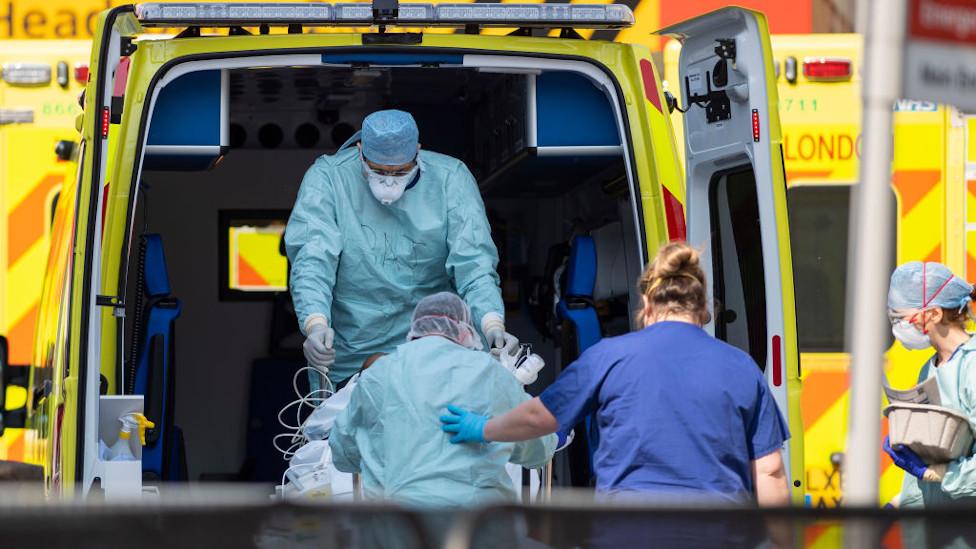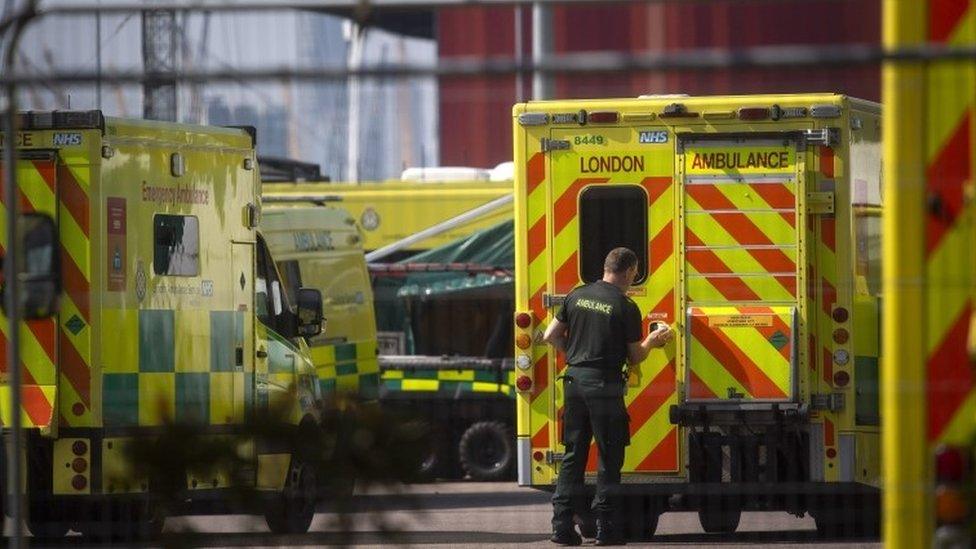Coronavirus: Academic's concerns over BAME deaths data
- Published

Dr Manish Pareek said only 7% of all worldwide reports into Covid-19 deaths recorded ethnicity
An academic clinician has raised concerns over the lack of recorded data on the number of Covid-19 deaths of people from BAME backgrounds.
Dr Manish Pareek, from the University of Leicester, said in the Lancet, external only 7% of all worldwide reports into Covid-19 deaths recorded ethnicity.
He said data is needed to see if BAME communities were at increased risk.
The UK government has announced a review into the impact that coronavirus is having on ethnic minorities.
Dr Pareek said the omission of data on ethnicity "seems stark given the disproportionate number of deaths amongst healthcare workers from BME backgrounds".
The Intensive Care National Audit and Research Centre, external found 34% of more than 4,800 critically-ill patients with Covid-19 identified as black, Asian or minority ethnic.
'Disproportionate impact'
NHS England said 16.2% of Covid-19 deaths up to 17 April involved BAME people.
"Given previous pandemic experience, it is imperative policy-makers urgently ensure ethnicity forms part of a minimum dataset," Dr Pareek said.
"If ethnicity is confirmed to be associated with adverse Covid-19 outcomes, this must directly, and urgently, inform public health interventions globally."
He said reasons why BAME communities might be at increased risk were because "certain ethnic groups such as South Asians have higher rates of certain co-morbidities" such as diabetes, hypertension and cardiovascular diseases, which have been associated with severe disease and mortality in Covid-19.
At Saturday's daily Downing Street press conference, Communities Secretary Robert Jenrick said: "There does appear to be a disproportionate impact of the virus on BAME communities in the UK.
"It is for that reason that the Chief Medical Officer commissioned work from Public Health England to better understand this issue. It is right we do thorough research swiftly, so we can better understand it and then take any action that is required."
A Home Office spokesman said: "It is absolutely critical that we find out which groups are most at risk so we can help to protect them and that is why the government has asked Public Health England to look into this issue.
"A person's ethnicity is not collected as part of the death registration, or on a Medical Certificate of Cause of Death. The information collected is specified in legislation, and there are no plans to change this."

A SIMPLE GUIDE: How do I protect myself?
AVOIDING CONTACT: The rules on self-isolation and exercise
HOPE AND LOSS: Your coronavirus stories
LOOK-UP TOOL: Check cases in your area
VIDEO: The 20-second hand wash


Follow BBC East Midlands on Facebook, external, Twitter, external, or Instagram, external. Send your story ideas to eastmidsnews@bbc.co.uk, external.
- Published19 June 2020

- Published12 April 2020
